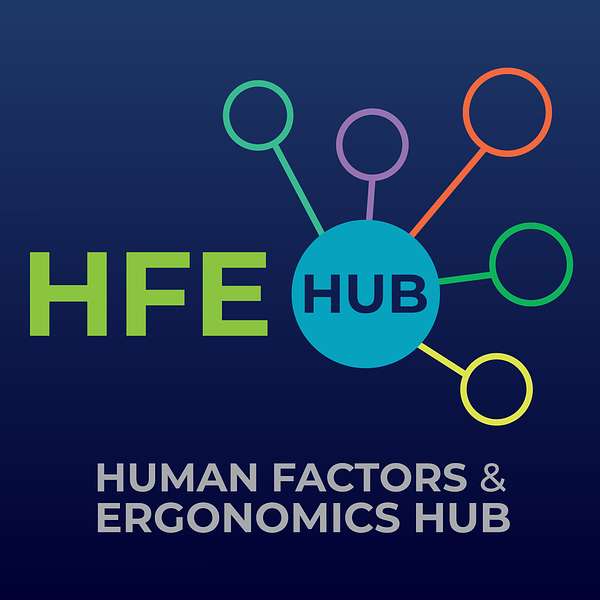
Human Factors & Ergonomics (HFE) Hub
Human Factors & Ergonomics (HFE) Hub
Chris Fitzgerald - The "Nerdy" Operational Ergonomist' & the practical application of HFE
Sharon Todd is chatting to Chris Fitzgerald about his practical application of Ergonomics and Humans factors to minimise injury risk.
Chris Fitzgerald is a passionate Certified Professional Ergonomist whose career emphasis has been on facilitating meaningful and durable improvement in the design of work. His original career was in Prosthetics and Orthotics, but after 5 years of working in clinical environments, he transferred to Ergonomics to work in occupational settings and has operated his own consulting business, Risk and Injury Management Services, since 1993.
A feature of Chris’s work has been the measurement of human activity in workplaces. This has involved quantifying force exertion in complex environments, the use of EMG to understand patterns of muscle activity and the utilisation of a whole-body system of 17 movement sensors to define the physical requirements of work tasks.
Chris has been fortunate to work across a diverse range of industries and has developed specific expertise within emergency services (fire and ambulance), red meat processing, disability support services and the television industry to name a few. Chris’s work in ambulance design extended to his role for 8 years as the Head of Ergonomics for the Emergency Medical Services Safety Foundation, a not-for-profit organisation based in New York, USA. The Foundation had a global reach with involvement across North America, Europe and Asia, and actively promoted new approaches to the design of ambulances and methods of patient and equipment handling for paramedics.
More recently Chris has gone back to his prosthetics roots where he has just completed a 3-year project in Indonesia, Timor Leste and Cambodia, with RMIT University in Melbourne. This project involved overseeing the implementation of a novel way of casting the transtibial residual limb of amputees using water pressure that resulted in a 60% efficiency gain for casting, manufacture and fitting and delivered a remarkable 96% approval rating from recipient amputees.
Chris’s current focus is on his role as a change leader within the Australian red meat processing industry where he is leading the industry’s selective introduction of exoskeletons.
This educational podcast is brought to you by the Human Factors and Ergonomic Society of Australia. If you like this podcast please make us your favourite on your podcast app.
If you want to find out more about Human Factors and Ergonomics or if you have a question about this podcast please go to the HFESA website ergonomics.org.au and make your request via our contact page. We will be back with more episodes soon!
Podcasts we love
Check out these other fine podcasts recommended by us, not an algorithm.
Human Factors Cast
Human Factors Cast
